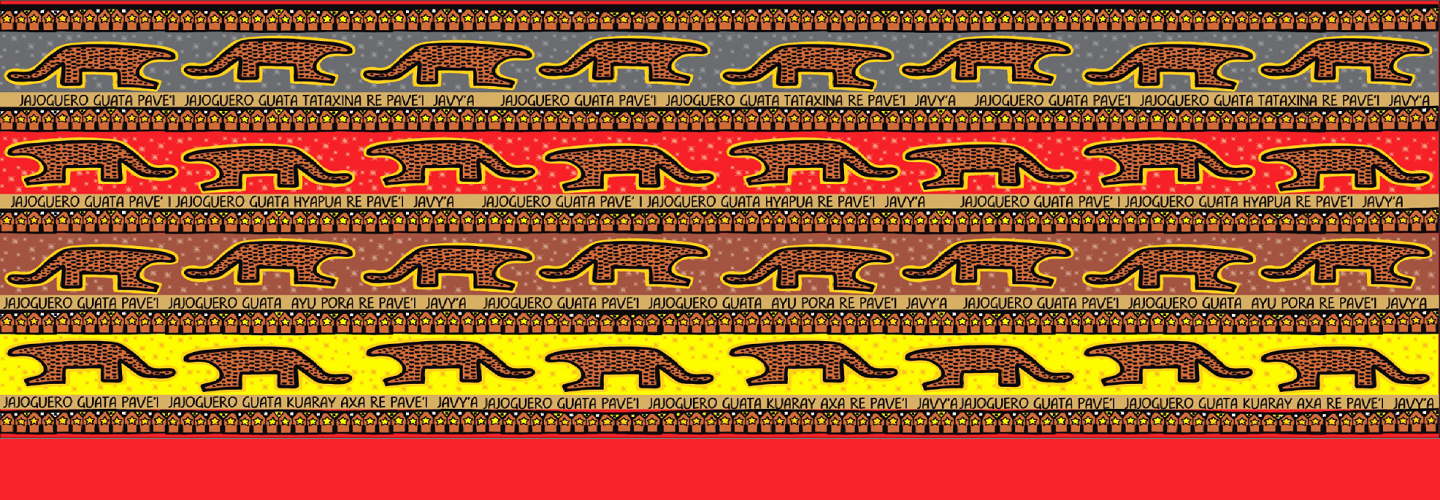Project utilises a network of academics and service users across Brazil to understand the effect of COVID-19 on indigenous peoples in the country, and how they have responded.
By Mr Shamim Quadir (Senior Communications Officer), Published
The Indigenous Peoples responding to COVID-19 in Brazil: social arrangements in a Global Health emergency project is being conducted over the course of 2021, and entirely remotely.
Since the outbreak of the COVID-19 pandemic, and in the absence of clear national public-health leadership, most of the 300 different indigenous peoples of Brazil have had to take the responsibility of containing the spread of the virus among their communities into their own hands.
These communities are at high risk as a result of recent socio-political developments such as mining development and migration into remote areas, and it is also likely that many indigenous COVID-19 infections and deaths remain undocumented.
Led by Dr Maria Paula Prates of City, University of London, the research relies on a core network of 60 researchers and 20 further collaborators – indigenous and non-indigenous – throughout the Brazilian territory.
Anthropology is the study of human societies and cultures and their development.
Using anthropological methodology and knowledge, such as rapid appraisal and participatory ethnographies, which includes online interview, documentary, and bibliographic and visual data, the project researchers are identifying indigenous responses and mobilisation of strategies to mitigate the risks of COVID-19. They also bearing witness to the hitherto undocumented impact of the pandemic on indigenous lives.
Since January, the researchers have been reporting monthly developments on the project via a dedicated website, called, The Platform for Anthropology and Indigenous Responses to COVID-19 (PARI-c).
Since June, nine case studies representing the work were started and are due to be published from September 2021. The case studies are structured within three axes: 1. Health, Care and Death; 2. Mobility and Circulation; 3. Gender and will provide more in-depth analyses of the following eight contexts:
1 - Childbirth and care during COVID-19
2 - Social distancing and its understandings
3 - Women, food and care
4 - Struggle, life and the pandemic within the Apinajé territory
5 - Territorial demands, health and indigenous care in Amazonas
6 - Indigenous women and cosmopolitics of care in Upper Rio Negro
7 - Women’s traditional knowledge and indigenous health
8 - Indigenous movements, the pandemic and social control: strategies of mobilization and coping with COVID-19 by indigenous peoples from Pernambuco and Paraíba.
9 - Vaccination
The project is the result of an international cooperation agreement between the University of London (City University, UK), and the University of Health Sciences of Porto Alegre (UFCSPA), the University of Southern Bahia (UFSB) and the University of São Paulo (USP), in Brazil.
It is funded by a UK Research and Innovation (UKRI) and National Institute for Health Research (NIHR) initiative to support new projects to tackle COVID-19 in low & middle-income countries.
Project Lead, Dr Maria Paula Prates, Research Fellow at the School of Health Sciences, City, University of London said:
In order to address this hidden public health emergency and the extreme risk to indigenous lives, this project aims to fill the gap between anthropological knowledge and that of global and public health. Evidence from previous epidemics, such as with HIV and Ebola, suggests that anthropological expertise could also have a great impact on the current COVID-19 emergency among indigenous peoples. It could bring into light the public health potential of local, culturally rooted responses and community mobilisation, investing in communication and articulation among scientific fields, as well as with a multiplicity of health agencies, and local communities. By engaging decision-makers within indigenous communities through an anthropological approach we aim to facilitate and shape more effective responses to this pandemic.
Find out more
Visit the PARI-c website
Listen to audio recorded oral messages (with transcription) from Talcira Gomes, an indigenous, Guarani leader, to Dr Prates, voicing her concerns about the developing COVID-19 pandemic.
Read the research project outline
Visit the webpage of the School of Health Sciences at City, University of London
